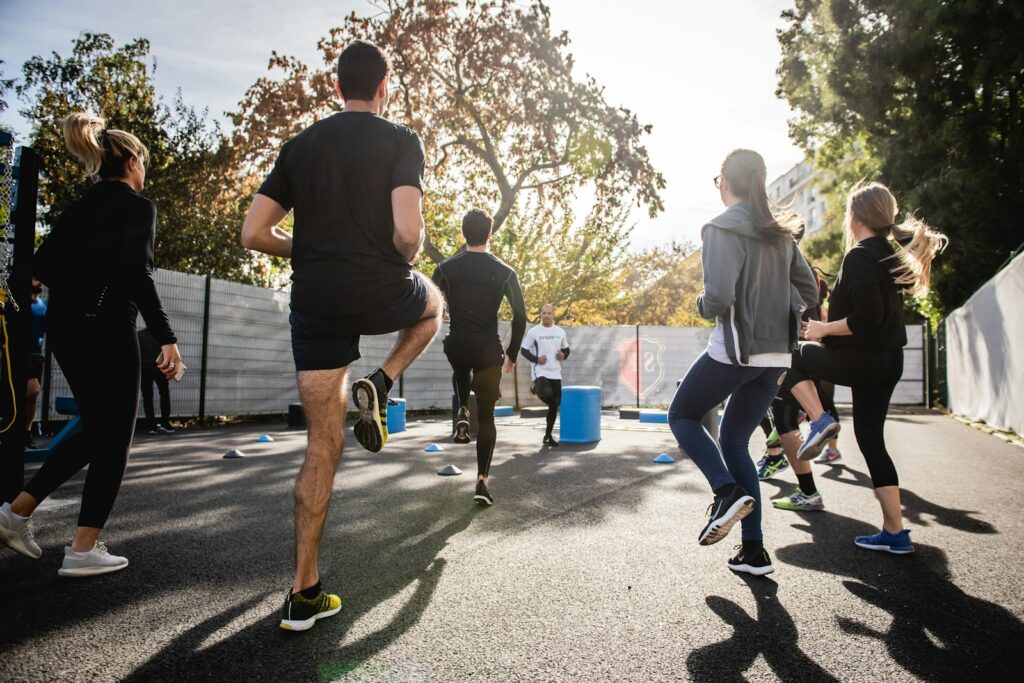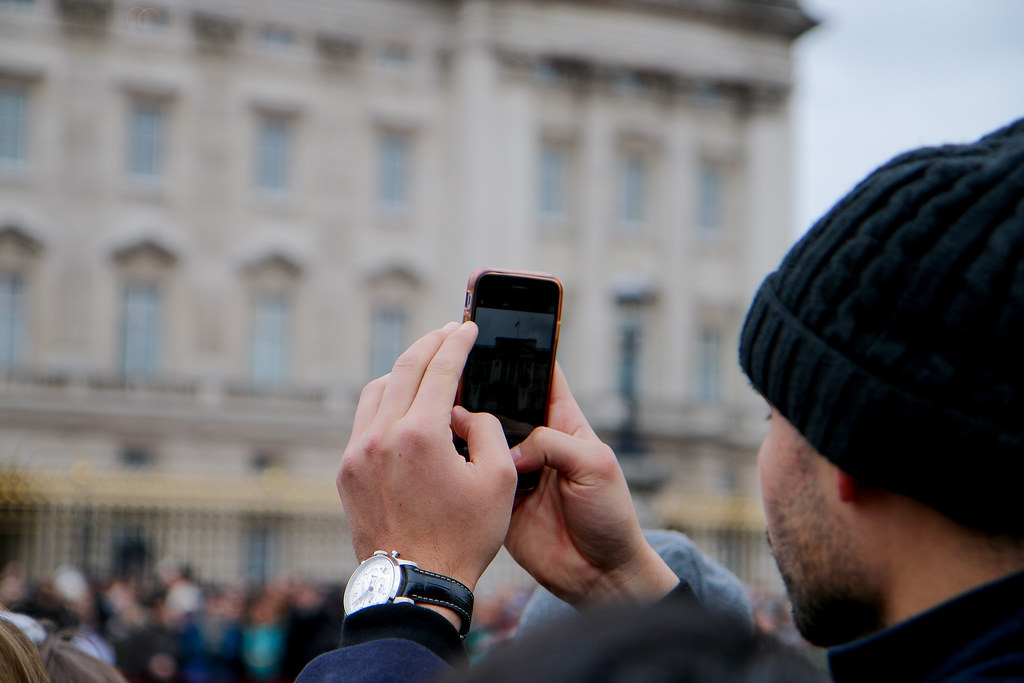
Maintaining high energy levels throughout the day can often feel like an elusive goal, especially with the relentless demands of modern life. We’ve all been there – the mid-morning slump, the afternoon fade, reaching for another cup of coffee or a sugary snack, only to find ourselves crashing harder later. While these quick fixes offer temporary boosts, the true secret to sustained vitality lies not in external stimulants, but in adopting a series of well-chosen habits that nourish our bodies and minds from within.
Just as the Andrew Huberman daily schedule emphasizes the importance of routine for optimal performance, our eating patterns and daily rituals play a vital role in keeping us energized and focused. By consciously focusing on nutrient-dense foods, balanced meals, and integrating practical lifestyle adjustments, you can effectively fuel your body and maintain steady energy levels that last from dawn till dusk. It’s about understanding the ‘why’ behind the ‘what’ – how your body processes nutrients and how small, consistent actions can have a profound impact on your overall well-being.
Forget the jitters and crashes. It’s time to unlock a more natural, consistent source of energy. Let’s explore some practical, actionable tips and strategies designed to help you achieve sustained energy throughout the day, transforming how you feel and perform. Get ready to learn the secrets to an energy boost that will stay with you long after your morning cup of joe.

1. **Start Your Day with a Nutritious Breakfast**It truly is your most important meal of the day, a truth worth repeating. After a night of fasting, your body desperately needs fuel to kickstart your metabolism and get you going. A nutritious breakfast replenishes your body’s energy stores and provides essential vitamins and minerals, setting the tone for your entire day’s energy levels by helping to stabilize blood sugar and prevent those dreaded mid-morning energy crashes.
Lauren Manaker, MS, RDN, LD, CLEC, an award-winning registered dietitian, affirms that “Starting your day with a balanced, nutritious breakfast is one of the best ways to ensure sustained energy throughout the day. Consuming a meal rich in protein, fiber, and healthy fats within the first two hours of waking up can kickstart your metabolism and provide a steady release of energy.” This isn’t just about eating; it’s about strategic fueling.
A balanced breakfast should be a powerhouse of essential nutrients. Look for complex carbohydrates, such as whole grains, fruits, and vegetables, which provide a steady release of energy without the sudden spikes. Lean protein sources like eggs, yogurt, and lean meats are crucial for satiety and muscle support, keeping you full longer. Don’t forget healthy fats from avocados, nuts, and seeds, which are vital for cognitive function.
Think about a satisfying bowl of oatmeal topped with fresh berries, a dollop of Greek yogurt, and a sprinkle of nuts for a complete energy package. Alternatively, a quick spinach and feta omelet paired with a side of whole-grain toast can also cover all your nutritional bases. The goal is to find enjoyable options that ensure you’re getting a diverse range of nutrients to properly ignite your metabolism and maintain consistent blood sugar levels.
Read more about: Unlock Your Heart’s Potential: 13 Secret Foods Doctors Wish You Knew Could Lower Your Cholesterol

2. **Strategic Snacking**Snacking, when done intelligently, can be a powerful tool for maintaining energy levels between meals and preventing drastic energy dips. The key, however, lies in making smart choices and avoiding the common trap of sugary snacks that offer a fleeting high followed by an inevitable crash. Instead, focus on snacks that strategically combine protein and fiber.
These combinations are your allies in sustained energy, keeping you feeling fuller for longer and minimizing unhealthy cravings. For instance, Greek yogurt paired with fruit provides both protein and fiber, a winning combination. A handful of nuts and seeds is another excellent choice, packed with healthy fats, protein, and fiber to tide you over until your next meal. For those following a low-carb diet, a keto puff can be a tasty and satisfying alternative that also provides sustained energy.
Beyond just maintaining energy, healthy snacking offers several significant benefits. It prevents overeating at main meals by curbing intense hunger, making portion control much easier. Snacks packed with nutrients, like protein bars, fruits, or nuts, ensure your body continues to receive the necessary fuel without resorting to calorie-rich, nutrient-poor options. This is especially helpful in combating the “afternoon slump” by providing a timely energy recovery.
Furthermore, strategic snacking is a superb defense against unhealthy cravings. When blood sugar levels drop too low, it often triggers a desperate search for sugary, high-calorie foods. Eating healthy snacks at the right intervals can prevent these dramatic blood sugar dips, helping to curb those urges for donuts, cookies, or chips. Pairing fruits like bananas or apples with yogurt, or opting for protein bars and fiber-rich vegan snacks, can keep your blood sugar stable and your cravings at bay.
Read more about: Unlock Your Heart’s Potential: 13 Secret Foods Doctors Wish You Knew Could Lower Your Cholesterol

3. **Prioritize Hydration**Often underestimated, staying adequately hydrated is absolutely crucial for maintaining optimal energy levels throughout your day. Even mild dehydration can manifest as fatigue, lethargy, and decreased concentration, masquerading as a need for more sleep or food when what your body truly craves is water. Water is indispensable to almost every bodily function, from transporting nutrients to cells to aiding in cellular energy production.
Your primary goal should be to drink plenty of water consistently throughout the day. Aim for at least eight glasses daily, and even more if you’re physically active or reside in warmer climates. Herbal teas can also contribute to your fluid intake without adding sugar or excessive caffeine. Furthermore, don’t overlook the power of water-rich fruits and vegetables like watermelon, cucumber, celery, and oranges, which contribute to your hydration needs while also providing essential vitamins and minerals.
Manaker highlights hydration as a “cornerstone” of maintaining energy, explaining, “Water is vital for virtually every bodily function, including the transport of nutrients and oxygen to cells, which subsequently supports metabolism and energy production.” This cellular support directly translates to a more energized you. Your brain, primarily composed of water, is particularly sensitive to dehydration; even slight fluid loss can impact cognitive function, mood, and concentration.
Starting your day with hydration is especially impactful. Consider drinking water first thing in the morning to rehydrate after a night’s sleep and kickstart your system. This simple habit can make a noticeable difference in your initial alertness and sustained energy. Pair consistent water intake with hydrating foods to optimize performance and combat fatigue, ensuring your body’s metabolic processes, including ATP production – the molecule responsible for cellular energy – run smoothly.
Read more about: Beyond Boot Camp: 14 Essential Military Hacks That Could Be Your Lifeline in a Crisis
4. **Embrace Whole Foods & Limit Processed Foods**The quality of your fuel directly impacts your energy output. Whole foods – think fruits, vegetables, whole grains, and lean proteins – are nature’s energy boosters. They are packed with essential nutrients, vitamins, minerals, and fiber, all of which are vital for supporting efficient energy production in your body. Because these foods are digested slowly, they provide a gradual and steady release of energy, preventing the erratic spikes and crashes associated with less nutritious options.
Incorporating a vibrant variety of colorful fruits and vegetables into your meals ensures you receive a broad spectrum of micronutrients. For example, complex carbohydrates found in whole grains like brown rice, quinoa, and oats, or starchy vegetables like sweet potatoes, provide that slow, sustained glucose release that keeps energy stable. Legumes such as lentils and chickpeas are also excellent sources of fiber and complex carbohydrates, making them ideal for long-lasting fuel.
Conversely, processed foods are often laden with added sugars, unhealthy fats, and artificial ingredients that actively sabotage your energy levels. These ingredients lead to rapid blood sugar spikes, followed by dramatic crashes that leave you feeling sluggish and fatigued. Limiting your intake of these items is a crucial step toward maintaining stable, consistent energy throughout the day and supporting your natural energy cycle.
When you’re doing your grocery shopping, a simple rule of thumb is to stick to the perimeter of the store. This is typically where you’ll find fresh produce, lean meats, and dairy – the foundational whole foods that will truly nourish your body and provide sustained energy. By making a conscious effort to choose whole, natural foods over their processed counterparts, you’re making an investment in consistent vitality and preventing those undesirable energy swings.
Read more about: Unlock Your Heart’s Potential: 13 Secret Foods Doctors Wish You Knew Could Lower Your Cholesterol

5. **Mastering Portion Control & Meal Timing**It’s not just what you eat, but how much and when. Overeating, especially large meals high in refined carbohydrates, can paradoxically lead to sluggishness and decreased energy levels rather than a boost. Your body diverts significant energy to digestion, often leaving you feeling heavy and tired. Paying close attention to portion sizes is a straightforward yet highly effective strategy to avoid this post-meal slump and maintain consistent energy.
Eating smaller, more frequent meals throughout the day can keep your metabolism active and prevent energy dips. This approach helps stabilize blood sugar levels, avoiding the dramatic spikes and crashes that accompany large, infrequent meals. Listen to your body’s hunger and fullness cues – stopping when you are comfortably satisfied, rather than overly full, is a mindful practice that supports optimal digestion and sustained energy release.
Regarding meal timing, consistency is key. Kickstart your metabolism by eating breakfast within an hour of waking, ensuring a balanced intake of nutrients. This sets the stage for steady energy throughout the morning. During the day, strategic snacking between meals, opting for nutrient-dense choices like a handful of nuts or Greek yogurt, helps bridge the gap and prevent hunger from leading to overeating or poor food choices.
It’s also beneficial to consider your evening meals. Avoiding large, heavy dinners, especially close to bedtime, can significantly impact your sleep quality, which in turn affects your energy the following day. Heavy meals can disrupt digestion and make it harder for your body to fully rest. By adopting a rhythm of appropriately sized, balanced meals and snacks, you can ensure a continuous supply of fuel, keeping your energy stable and preventing those unwelcome dips.
Read more about: Cracking the Code: Can Diabetics Safely Enjoy Watermelon? Your In-Depth Guide to Fruit and Blood Sugar Management

6. **Conscious Eating Practices (Mindful Eating)**In our fast-paced lives, it’s all too easy to rush through meals, often eating at our desks, in front of a screen, or while multitasking. This habit of “wolfing down” food without much thought can significantly impact your energy levels and overall well-being. Mindful eating, however, transforms mealtime into an intentional, beneficial experience that supports sustained energy and better digestion.
Mindful eating encourages you to slow down and truly engage with your food. This means taking the time to chew your food thoroughly, which aids in digestion and nutrient absorption. Putting your fork down between bites can help you pace yourself and become more aware of your body’s signals. By minimizing distractions like phones or television during meals, you can focus on the sensory experience of eating, including the taste, texture, and aroma of your food.
By eating slowly and mindfully, you are far more likely to eat an appropriate amount, recognizing your body’s hunger and fullness cues more accurately. This prevents overeating, which, as discussed, can lead to sluggishness. Furthermore, giving your digestive system adequate time to process your food efficiently ensures that nutrients are properly extracted and converted into usable energy, rather than being rushed through the system.
Integrating mindful eating into your daily routine is a simple yet powerful habit that can dramatically enhance your energy. It’s about respecting your body and the fuel you provide it, fostering a healthier relationship with food, and ensuring that every meal contributes positively to your sustained vitality. It allows you to tune into your body’s needs and respond in a way that truly supports consistent energy.

7. **Optimize Evening Eating for Better Sleep**What you consume in the hours leading up to bedtime plays a pivotal role in the quality of your sleep, which, in turn, is a fundamental determinant of your energy levels the following day. Poor sleep inevitably leads to fatigue, reduced cognitive function, and a general lack of vitality. Therefore, making smart choices about your evening eating habits is a direct investment in your next day’s energy.
One of the most crucial tips is to avoid heavy meals close to bedtime. Large, rich, or spicy foods can be difficult to digest, leading to discomfort, indigestion, and acid reflux that can disrupt your sleep cycle. Give your body a few hours to process your dinner before you lie down. This allows your digestive system to work efficiently without interfering with your body’s natural wind-down process.
Limiting caffeine intake, particularly after 2 PM, is also essential. While caffeine might give you a temporary boost during the day, its stimulating effects can linger for hours, interfering with your ability to fall asleep and achieve deep, restorative sleep. Even if you feel you can sleep after caffeine, the quality of that sleep may be compromised, leaving you feeling less refreshed in the morning.
Instead, consider incorporating sleep-promoting foods into your evening routine. Tart cherries, kiwi, and warm milk are often cited for their natural compounds that can aid relaxation and sleep. If you find yourself needing a bedtime snack, opt for something light and easily digestible, such as a small banana or a few almonds. These choices provide a subtle energy boost without burdening your digestive system, helping you transition smoothly into a night of restful, energy-restoring sleep.
Read more about: Mastering the Dark: Driving Pro’s Essential Guide to Enhancing Night Driving Visibility with Easy, Actionable Adjustments for Every Driver

8. **Strategic Caffeine Use**While many of us reach for a cup of coffee to kickstart our mornings, understanding how to use caffeine strategically, rather than relying on it excessively, is crucial for sustained energy. Caffeine, commonly found in beverages like coffee and energy drinks, offers a quick, albeit often short-lived, burst of energy. This immediate surge comes from its ability to stimulate the nervous system, boosting alertness and temporarily reducing the perception of fatigue, which can be helpful in measured doses.
However, this stimulating effect is precisely why caution is advised. The energy boost caffeine provides is typically temporary, often leading to a noticeable “crash” afterward, leaving you feeling more fatigued and lethargic than before. Over-reliance on caffeine can also become a significant disruptor of your sleep patterns. Even if you feel you can sleep after a late-day coffee, the quality of that sleep might be compromised, further intensifying feelings of tiredness the following day.
Experts suggest limiting caffeine intake, especially after 2 PM. This simple adjustment allows your body sufficient time to metabolize the stimulant before bedtime, preventing it from interfering with your ability to fall into a deep, restorative sleep. It’s about being mindful of caffeine’s lingering effects and ensuring it doesn’t inadvertently sabotage your nocturnal recovery.
Instead of constantly chasing the next caffeine high, consider a more balanced approach. If you find yourself reaching for another coffee out of habit, pause and ask if what your body truly needs is hydration. Often, mild dehydration can manifest as fatigue, which water can easily remedy. Replacing some of those extra caffeine fixes with water, or even a flavorful DIY detox water, can be a simple yet powerful shift towards more stable energy.
Read more about: 15 Key Reasons Major Coffee Chains Are Struggling to Retain Customers Amid Shifting Market Dynamics

9. **Harnessing Natural Light**Beyond what you consume, leveraging environmental factors like natural light can profoundly impact your daily energy. Good old natural sunlight, particularly in the morning, works wonders for your body and is an excellent way to elevate your energy levels. Stepping outside to get some fresh air and sunshine as you start your day provides a natural, invigorating boost that no artificial light can replicate.
The science behind this is fascinating: morning sunlight contains higher levels of blue light. This specific wavelength is critical because it signals your body to cease melatonin production—the hormone responsible for inducing sleep. By suppressing melatonin early in the day, natural light helps you wake up feeling more alert and ready to tackle your tasks, effectively switching your body from rest to active mode.
Moreover, our bodies are intrinsically linked to natural light cycles through our internal biological clock, known as the circadian rhythm. This rhythm governs not just our sleep and wakefulness patterns, but also influences digestion and energy metabolism throughout the day. Consistent exposure to morning sunlight is a powerful tool for synchronizing this internal clock, which in turn leads to improved sleep quality and more stable, sustained energy levels during your waking hours.
Making morning sunlight a non-negotiable part of your routine is a simple, free, and incredibly effective strategy for boosting vitality. Whether it’s enjoying your breakfast by a sunny window, taking a brief walk, or simply stepping onto your balcony for a few minutes, actively seeking out natural light can significantly enhance your alertness, mood, and overall energy, helping you feel more vibrant from the moment you rise.
Read more about: Mastering the Wild: 10 Indispensable Survival Skills Every Man Must Know

10. **Incorporating Morning Exercise**Starting your day with physical activity might seem counterintuitive if you’re already feeling low on energy, but incorporating morning exercise is a remarkably effective strategy for boosting vitality that lasts throughout the day. Regular physical activity plays a vital role in cultivating and promoting solid, consistent energy levels, making it a cornerstone of a high-energy lifestyle.
The key is to find exercises you genuinely enjoy, making the habit sustainable and something you look forward to. You don’t need to commit to an intense gym session; even a brisk morning walk can work wonders. Engaging in physical activity prompts your body to increase its production of endorphins, often referred to as the “feel-good” hormones. These natural chemicals not only elevate your mood but also provide a significant energy boost, setting a positive and energetic tone for your entire day.
Beyond the immediate feel-good factor, exercise also dramatically enhances blood flow throughout your body. This improved circulation ensures that oxygen and essential nutrients are efficiently delivered to your muscles and tissues. With better oxygenation and nourishment, your cells function more effectively, directly improving their overall function and endurance, which translates to sustained energy and less fatigue as the day progresses.
Making time for a morning workout, however short, can transform your energy landscape. It’s an investment in your well-being that pays dividends in mental clarity, improved mood, and a steady stream of physical energy. Whether it’s a quick yoga flow, a jog, or some dynamic stretches, finding your preferred way to move your body in the morning will undoubtedly contribute to a more energized and productive day.
Read more about: Unlock Your Heart’s Potential: 13 Secret Foods Doctors Wish You Knew Could Lower Your Cholesterol

11. **Practicing Digital Detox**In our hyper-connected world, one of the most insidious energy drainers can be the immediate grab for your phone upon waking. It’s a common, almost instinctive, habit to reach for emails, social media, or news updates before your feet even hit the floor. However, practicing a digital detox, especially in the first moments of your day, can dramatically safeguard and enhance your personal energy reserves.
Kelsey Decker, NSCA-CPT and manager of training for StretchLab, cautions against this modern morning ritual. She explains that this practice, which she adapted from Jay Shetty, suggests that “looking at your phone first thing in the morning drains your energy toward others instead of using it for yourself.” This immediate influx of external demands, information, and potential stress can hijack your mental space before you’ve even had a chance to orient yourself.
Decker shares her personal strategy: she places her phone in another room, like the living room, while she engages in her morning routine of washing her face and getting ready. This simple yet powerful boundary provides her with approximately 30 minutes to wake up gradually, cultivate her own thoughts, and mentally prepare for the day ahead. This allows for a crucial period of self-focus, preventing external influences from dictating her initial mindset or piling on unnecessary stress before the day begins.
By intentionally delaying screen time, you create a buffer zone that allows your mind to gently transition from sleep to wakefulness. This practice fosters mental clarity and helps you establish a sense of inner calm before engaging with the demands of the outside world. Giving yourself this valuable “you time” each morning is a powerful way to preserve your energy, reduce cognitive load, and ensure you start your day feeling centered and energized, rather than reactive and overwhelmed.
Read more about: Exposed: 14 Dark Secrets and Scam Tactics of the Wellness Industry’s Most Deceptive Gurus

12. **Meditation**In our increasingly demanding world, mental clutter and stress are significant, often overlooked, energy zappers. This is where the simple yet profound practice of morning meditation comes into play. Dedicating just a few minutes each day to quiet your mind can do a world of good for your overall energy levels and mental clarity, providing a powerful antidote to the fatigue that a busy mind can induce.
As Kelsey Decker emphasizes, “Stress and a busy mind can lead to feeling tired very quickly.” Constantly processing thoughts, worries, and to-do lists can be as exhausting as physical exertion. Meditation offers a direct solution by providing a dedicated space to “clear your mind, write out positive affirmations/focuses, or deep breathing exercises.” These practices help to reduce over-thinking, allowing you to approach your day with a clear head and a sense of calm focus.
Integrating meditation into your morning routine doesn’t require hours of dedicated practice. Even a brief three to ten-minute session can yield significant benefits. To enhance this ritual, consider choosing an outdoor spot or a comfortable room in your home, ideally one bathed in natural sunlight. This allows you to “kill two birds with one stone,” combining the energizing benefits of natural light with the calming effects of meditation.
The goal is to cultivate a serene start to your day, free from the immediate pressures and distractions. By prioritizing this mental reset, you can effectively decrease mental fatigue, improve concentration, and set a positive, centered tone that sustains your energy throughout your activities. Pairing this practice with initial hydration—perhaps with a refreshing glass of water—further amplifies the benefits, preparing both your mind and body for optimal performance.
Read more about: Unpacking ‘Beloved’: Why Toni Morrison’s Pulitzer-Winning Masterpiece Still Haunts and Inspires Us Today

13. **Leveraging Music**Never underestimate the power of a good soundtrack to your morning! Just as The Doobie Brothers famously advised, sometimes all you need to do is “listen to the music!” Incorporating your favorite tunes into your morning routine or commute can be a surprisingly effective and enjoyable way to inject a significant boost of energy and cultivate a positive mindset for the day ahead. It’s a delightful and accessible ritual that can transform even the most mundane parts of your morning.
Kelsey Decker, an expert in training, highlights the profound impact of this simple habit, noting that “There is nothing like a good playlist on your way to work to kick start your energy and positive mindset in the morning.” The right music has an almost magical ability to transform your mood, making you feel more vibrant and motivated before you even begin your official tasks. This auditory stimulation provides an immediate lift, setting an energetic and optimistic tone that resonates throughout your early hours.
The benefits are more than just anecdotal; music has a powerful physiological effect on your brain and body. It can significantly help decrease stress, which is a common and often invisible energy drainer, and simultaneously increase the production of endorphins—those natural “feel-good” hormones. By stimulating these positive responses, music actively combats mental fatigue and replaces it with feelings of well-being and alertness, effectively setting you up for a great day and improving your mental stamina.
So, curate a playlist that genuinely energizes and uplifts you, tailored to your personal taste and mood. Whether it’s upbeat pop, classical, instrumental, or anything in between, let the rhythm and melody guide your morning. This simple auditory ritual can be a secret weapon in your arsenal for sustained energy, transforming mundane routines into enjoyable, invigorating experiences that keep you feeling charged and positive from dawn till dusk, proving that sometimes, the simplest solutions are the most profound.
Read more about: Seriously Inspiring! These 15 Icons Faced Massive Rejection (Like 50+ Times!) Before Dominating Their Fields – Get Ready to Be Motivated!

14. **Cultivating Work-Life Balance**Perhaps one of the most impactful, yet often challenging, lifestyle adjustments for sustained energy is establishing a healthy work-life balance. In today’s always-on culture, the lines between professional and personal life can easily blur, leading to chronic overwork and an inevitable depletion of your energy reserves. Setting clear boundaries for yourself, ensuring that mornings and evenings are preserved as dedicated “you time,” is absolutely essential for an energy-filled and stress-free existence.
Consider the common scenario: waking up and immediately diving into work emails or tasks before even leaving the house. This habit, while seemingly productive, actually sets you up for early exhaustion, often leaving you feeling drained long before lunchtime. To counteract this, it’s vital to develop your own relaxing morning routine that allows for personal time before the workday officially begins. This intentional separation helps prevent mental fatigue and ensures you start your work fresh and focused.
The importance of this balance extends into the evening as well. Laura Blatterman, a master trainer for Club Pilates, openly shares her strategy for combating overwork, despite her “deep passion for [her] job.” She explains, “To combat this, I’ve established a strict cutoff time in the evening. Once I reach my allotted work hours for the day, I close my computer and switch off my phone.” This firm boundary is a powerful defense against the creeping exhaustion that comes from perpetual connectivity.
Blatterman’s approach underscores a fundamental truth: rest is not a luxury, but a crucial component in maintaining sufficient energy levels. By consciously ending your workday at a reasonable hour and disconnecting from work-related communications, you create space for recovery, personal pursuits, and restorative sleep. Cultivating this healthy boundary is an active investment in your long-term vitality, ensuring you have the energy to not just perform, but truly thrive, in all aspects of your life.
Read more about: Deconstructing the Mindfulness Phenomenon: What Real People and Science Reveal About Its Hype, Pitfalls, and True Potential
By embracing these practical habits – from nourishing your body with whole foods and proper hydration to integrating mindful morning rituals and cultivating a healthy work-life balance – you can unlock a truly transformative level of sustained energy. It’s about empowering yourself with choices that build vitality from within, rather than constantly chasing fleeting boosts. Remember, consistency is your greatest ally. Start small, experiment with what resonates most with you, and watch as these simple, actionable strategies not only banish the midday slump but also elevate your overall well-being, fueling a life lived with sustained vibrancy and focus.




